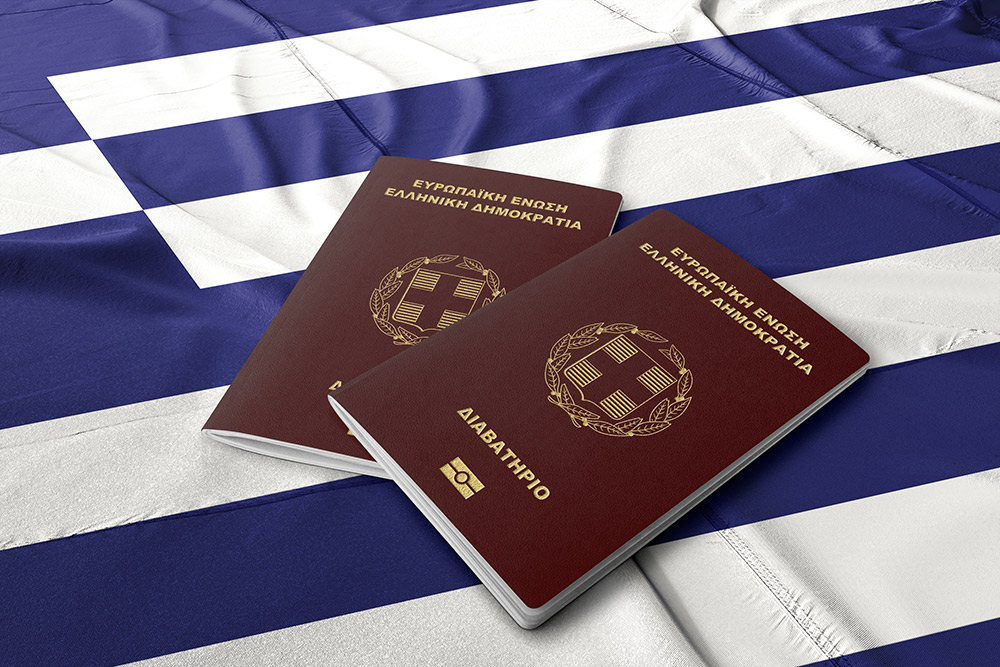The interest of expatriates abroad, i.e. persons who live in foreign countries and have Greek ancestry (e.g. from parents, grandparents or further ascendants), to exercise their right to Greek citizenship is increasingly appearing. The fact that Greek citizenship provides access to all countries of the European Union makes it particularly attractive and sought after by expatriates from countries such as the United States of America, Canada, Australia and now (after Brexit) the United Kingdom .
The way in which a descendant of a Greek citizen can acquire Greek citizenship depends on the following factors: 1) the degree of kinship with the Greek citizen (if the Greek is a parent, grandparent, great-grandparent, etc.), 2) if the origin from Greek concerns only the paternal or maternal line or if it concerns both lines (paternal and maternal), 3) the date of birth of the applicant and 4) the date and type (religious or political) of marriage of Greek ancestors.
More generally, we can distinguish the ways of acquiring Greek citizenship for Greek expatriates in the following categories:
I. Self-righteous acquisition of Greek citizenship:
Greek Citizenship is automatically acquired from the birth of the child in the following cases:
1) The child has been born within a marriage or cohabitation agreement to a Greek father and a Greek mother, both of whom are registered in the population register at the time of the child’s birth, regardless of the time of birth.
2) The child was born within a marriage or cohabitation agreement from 8/5/1984 onwards and at least one of the two parents is Greek registered in the municipal register at the time of the child’s birth.
3) The child was born in wedlock between 18/7/1982 and 8/5/1984 to a Greek father, who is registered in the civil registry at the time of the child’s birth.
4) The child was born out of wedlock to a Greek mother, who is registered in the civil registry at the time of the child’s birth.
In the above cases, the birth of the child is registered in the Special Registry of Athens and subsequently it is registered in the civil registry of its parent and consequently automatically acquires Greek citizenship.
II. Acquisition of Greek citizenship by determination:
Any person belonging to the following cases acquires Greek citizenship by birth after the issuance of an administrative decision by which the right to the Greek citizenship is determined:
1) A child born out of wedlock to parents who were not Greek at the time of his birth, but whose Greek citizenship was acquired by birth after his birth.
2) A child who was born within the framework of a marriage, according to Greek law, between a Greek father and a foreign mother before 18.7.1982 and
3) A child born within a non-existent, according to Greek law, marriage of a Greek mother to a foreign father before 8.5.1984.
Whoever wishes to obtain the Greek citizenship based on the above, must submit an application to the competent Regional Directorate of Citizenship of his place of residence in the Country or, if he does not reside there, to the Greek Consulate of his place of residence abroad. The Consul, after carrying out an investigation, especially in the consular registers kept at his authority, forwards the application to the competent Regional Directorate of Citizenship, under whose territorial jurisdiction the Municipality in which the applicant wishes to be registered falls. The Regional Directorate of Citizenship, after an investigation that carries out, in collaboration with the competent services of the municipalities of the country for registrations, in order to verify the registry facts and census records that prove the relationship with a Greek citizen, proceeds to issue an official decision of acquisition of Greek citizenship.
III. Acquisition of Greek citizenship by declaration
On the other hand, for the persons who do not fall into the above categories and cases, the legislator has taken special care, providing a specific procedure for these persons to obtain Greek citizenship, but not retroactively from their birth, but for the future. This includes the following persons:
1) Persons born of a Greek mother and a foreign (regardless of nationality) father within a common-law marriage until 08.05.1984 (article 14 par. 1 K.E.I). It should be noted that this category also includes all children born from 18.07.1982 to 08.05.1984 within a civil marriage that took place during the period in question, given that the civil marriage from 18.07.1982 was legally recognized as valid,
2) Persons born of a Greek father and a foreign (regardless of nationality) mother in a non-existent marriage until 16.07.1982 (article 14 par. 2 K.E.I).
IV. Acquisition of Greek citizenship by naturalization according to article 10 K.E.I.
The acquisition of Greek citizenship by naturalization concerns cases where the applicant’s parents are NOT registered in a Municipality in Greece and the Greek citizenship is acquired by the grandparent. In this case, the applicant must submit an application through the competent Greek Consulate of his place of residence and in the context of said application, an interview is conducted with the Greek consul, who then draws up a recommendation regarding whether the applicant is eligible the conditions to obtain Greek citizenship through the naturalization process.




